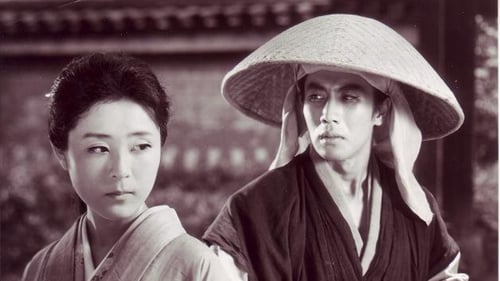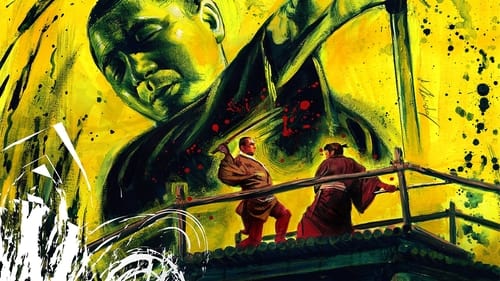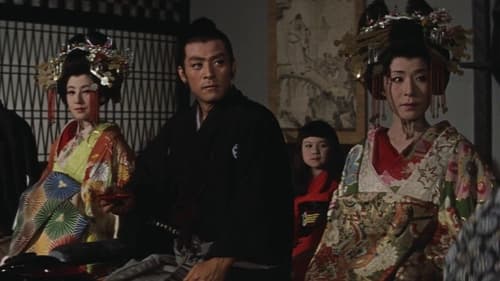
Wandering samurai Nemuri Kyoshiro (Raizô Ichikawa) finds a bulls-eye on his back after befriending the shogunate's tightfisted financial adviser, Asahina, who's earned the wrath of the shogun's self-indulgent daughter for cutting off her allowance. The enraged princess promptly hatches a scheme to have Asahina bumped off -- along with his protector, Kyoshiro. Shiho Fujimura also stars in this installment of the enormously popular film series.

советник Оэ
Yoso is truly a lost classic, set in the Nara Era (710-794), from Kinugasa Teinosuke the same writer/director who gave us the recognized classic Gate of Hell (Jigokumon, 1952) & the milestone silent surrealist masterpiece A Page of Madness (Kurutta Ippeji, 1926).

[Period covered: 1582-1594]. As the film opens, the warlod Nobunaga Oda rides to Iga Ayanokuni shrine. He is asked if he thinks he has destroyed all the ninja who opposed him and answers that he suspects that there may be more. A servant brings water and tests it first. The paige dies and we hear gunshots as two ninja flee the scene. His suspicions confirmed, Nobunaga oversees the execution of captured ninja and decides that, in the future, he needs a much crueler method of execution. The daimyo Hideyoshi comes to visit.

Mokichi
Primera de las veintiséis películas basadas en el personaje de Zatoichi interpretado por Shintarô Katsu. En esta primera película se presenta al personaje de Zatoichi como un masajista ciego extremadamente hábil luchando con la espada, el cual se encontrará en medio de la lucha de dos clanes yakuza rivales (Lioka y Sasagawa).

Ando
Basada en la novela THE GREAT BUDDHA PASS (la fuente de SWORD OF DOOM), esta versión de la clásica historia va más acorde con la novela original.
La historia de un asesino a sangre fría, Tsuke Ryunosuke y sus desventuras en Japón durante la década de 1860. Como telón de fondo de la agitación política de la época.
Esta es la primera de la trilogía.

This is the story of a blind masseur who tricks people, steals, and kills; he is the anti-Zatoichi

Follows the murder of a money-lending masseur by an impoverished samurai. The slain masseur's daughter will also fall victim to his curse, so that she can become empowered as an agent of her father's vengeance.

Kikuji is the scion of an Osaka merchant family whose traditional power is matrilineal. Instructed by his overbearing mother and grandmother to give them an heiress for the family business, he stands by helplessly as his wife is thrown out of the house for producing a son. Driven to a life of dissipation - his mistresses also fail to produce daughters - in the end he is just too tired to care.

Jûdayû Kazamaki

The film won 1959 Blue Ribbon Awards for best actor Raizo Ichikawa and for best cinematography Kazuo Miyagawa. The film also won 1959 Kinema Junpo Award for best actor Raizo Ichikawa.






